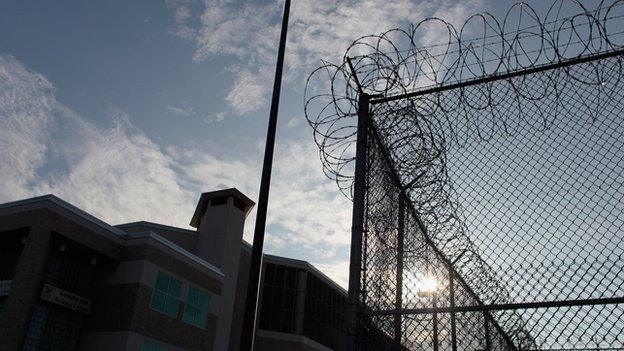Prison researchers urge Wales to take up 'credible alternatives'
- Published
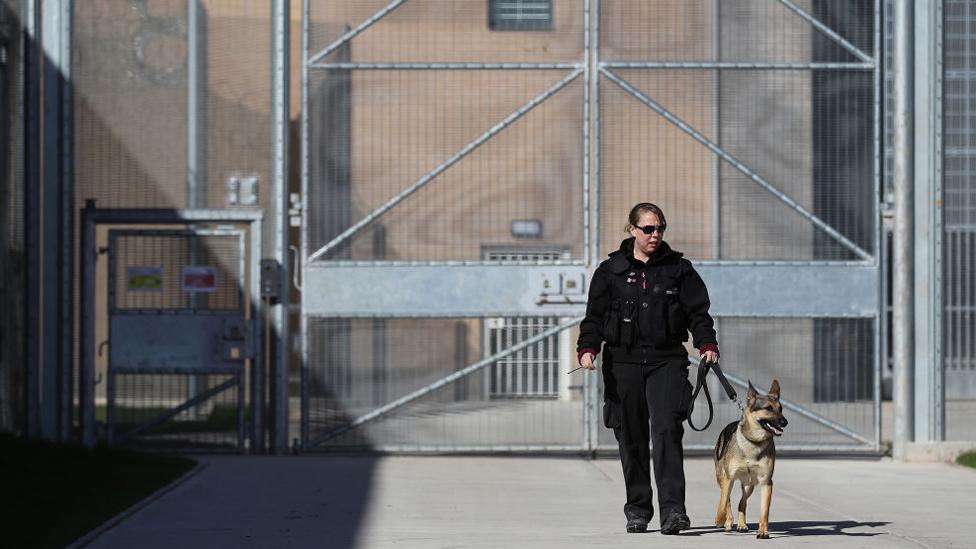
There are more than 5,000 prison places in Wales, including 1,550 at Berwyn in Wrexham, the newest prison
Wales should follow the lead of other nations and develop credible alternatives to prison, a study says.
The country has one of the highest prison rates in Europe, analysis from Cardiff University's Wales Governance Centre has already found.
It now says anything less than full devolution of criminal justice will constrain Wales' ability to reduce prison rates.
The Commission on Justice , externalis currently reviewing the justice system in Wales.
Wales Governance Centre research associate Robert Jones said other nations showed what Wales could be like if the "political will and constitutional structures align differently"
Its latest report says police, prosecutors, courts, probation and prison services need to work together on a national strategy.
'Viable alternatives'
But a "piecemeal transfer" of responsibility for these areas would "almost certainly act as a significant barrier," it says.
Researchers looked at examples from around the world:
Finland - which has gone from one of the highest to one of the lowest imprisonment rates in Europe, external
Portugal - where the use of illicit drugs was decriminalised
Texas - a US state described as a a US state described as a jurisdiction "ordinarily hostile" to prison alternatives.
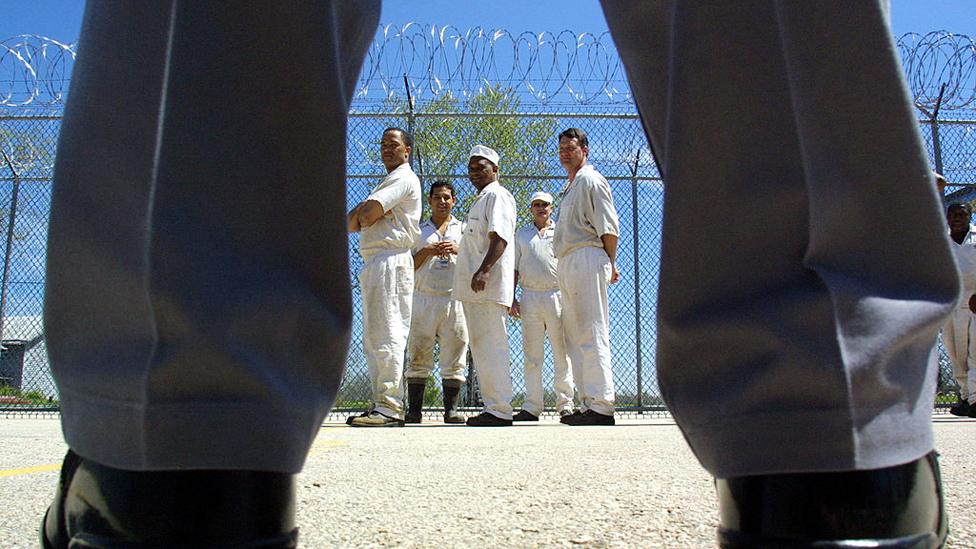
Texas has been looking at more rehabilitation, rather than building more prisons
Dr Jones said: "Our research into how other countries have tackled their high imprisonment rates shows that there are viable alternatives to custodial imprisonment.
"It might be thought that examples from 'high imprisonment societies' in the United States are of little relevance to Wales, but these jurisdictions have successfully reduced the numbers of people in custody and show that there are specific policy initiatives from which Wales, as a high imprisonment society, can learn."
"There is enormous opportunity for policymakers to think holistically about the role of the criminal justice system in Wales. Taken together, these case studies offer powerful examples of what Wales could be, were our nation's political will and constitutional structures to align differently."
The research also noted the links between failing welfare systems and higher imprisonment rates in other parts of the world.
It adds that Wales needs a "national conversation" about the imprisonment rate, with cross-party consensus given the "very substantial costs" involved.
There are currently around 5,000 prisoners in jails in Wales.
The centre's report in January analysed official figures and found average custody rates in Wales are higher than in England for a number of different groups and offences.
In particular, non-white Welsh people are over-represented in prison.
But the report added that:
much more detailed investigation is needed into what has worked around the world
an increased academic interest is needed in the criminal justice system in Wales
robust and credible alternatives to imprisonment are central, as is access to reliable data
Plaid Cymru AM Leanne Wood, a former probation officer, said having the highest average incarceration rate in western Europe was a "table-topping achievement we could well do without in Wales."
She added: "This unenviable statistic does not lead to better outcomes for anyone; not least the community where the prisoner is eventually released as they are more likely to reoffend."
Welsh Conservative criminal and justice policy spokesman Mark Isherwood AM said it was clear prison numbers could not be tackled in isolation.
"It is worth noting that between 2010 and 2017 the total number of prison sentences rose in Wales but fell by 16% in England, and that many of the services required to manage offenders, ex-offenders and promote rehabilitation are already devolved to the Welsh Labour Government," he said.
Mr Isherwood said it was "fundamental and essential" that the Welsh Government ensured that every young person left school being able to read, write and with the ability to succeed.
"However, prison still remains an essential deterrent and it is important that attempts to water down the impact of prison, such as by some who want to give prisoners the right to vote, are not enacted," he added.
Deputy minister and Chief Whip Jane Hutt said: "Although justice remains a non-devolved issue, we're working with a range of partners to make sure we collectively provide the best possible solutions for offenders in Wales."
- Published16 January 2019
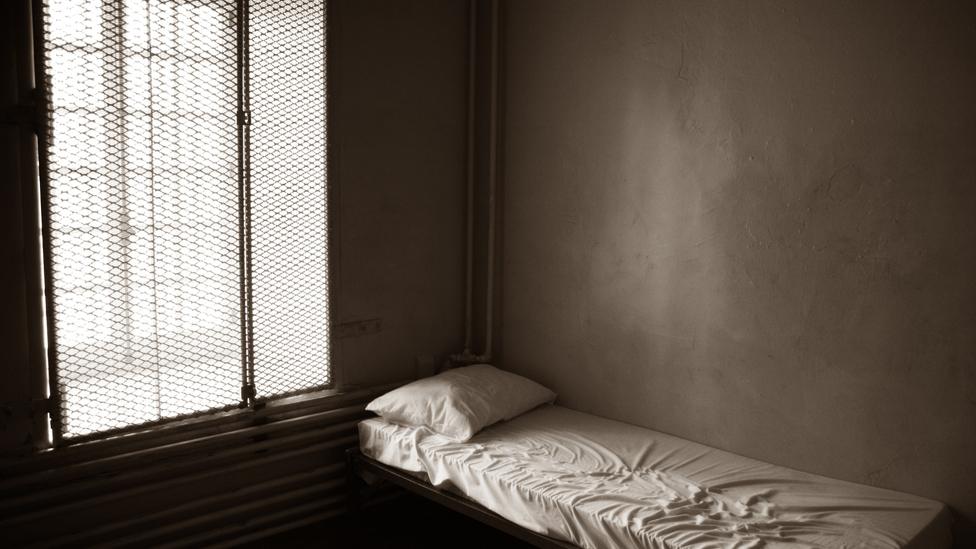
- Published29 August 2019
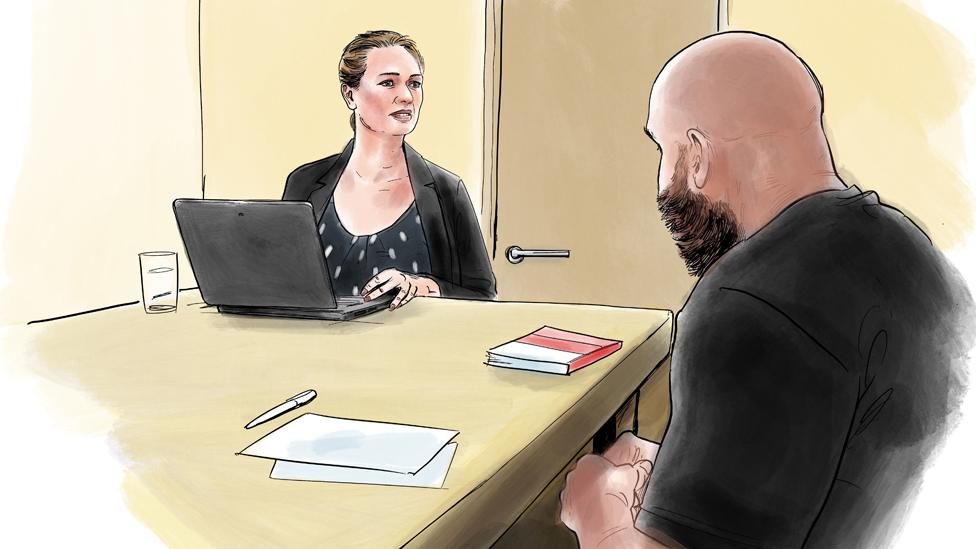
- Published22 August 2017

- Published1 December 2014
